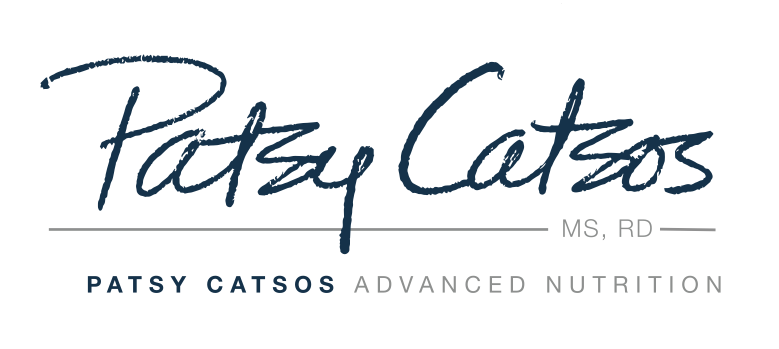Today’s guest post, which will be of great interest to many of our female readers, is from my colleague Angela Grassi, MS, RD, LDN. Angela is the author of The PCOS Workbook: Your Guide to Complete Physical and Emotional Health and The PCOS Nutrition Center Cookbook: 100 Easy and Delicious Whole Foods Recipes to Beat PCOS. Recognized last year by Today’s Dietitian as one of the Top 10 incredible dietitians making a difference, Angela was the 2013 recipient for the Award in Excellence in Practice in Women’s Health and is a past recipient of The Award for Excellence in Graduate Research, both from the Academy of Nutrition and Dietetics. Angela is the founder of The PCOS Nutrition Center where she provides evidence-based nutrition information and counseling to women with PCOS. Having PCOS herself, Angela has been dedicated to advocacy, education, and research of the syndrome.
Angela Grassi, MS, RD, LDN
It’s estimated that one in ten women have Polycystic Ovary Syndrome (PCOS), a sex-hormone imbalance in women of childbearing ages that causes both reproductive and metabolic consequences. Women with PCOS frequently report similar symptoms to those with IBS, including feeling bloated, experiencing constipation and/or diarrhea, and having stomach and pelvic pain.
· Signs and symptoms of PCOS include irregular or absent menstrual cycles, acne, hair growth on a woman’s face and body, hair loss from her head, weight gain and difficulties losing weight, and infertility.
· Elevated insulin levels are an underlying cause of PCOS, resulting in the need for nutrition modifications to help with weight management, improved fertility, and to prevent the onset of type 2 diabetes.
· Like those following the FODMAPs approach, women with PCOS are advised to limit their intake of sugary foods and beverages. Fructose and fructose-containing foods such as soft drinks, high fructose corn syrup have been shown to contribute to insulin resistance and are strongly discouraged. Gut-friendly sugars including granulated sugar, brown sugar and 100% pure maple syrup can be used but in moderation.
· High fiber foods can benefit women with PCOS as they can add fullness to meals, help with insulin and blood sugar regulation, and work to lower cholesterol. Examples of foods high in fiber include whole grains, legumes, beans, fruits, and vegetables, many of which pose challenges to women following a low FODMAPs diet. (Editor’s note: Click here for more information about low-FODMAP sources of fiber.)
· Women who struggle with PCOS and IBS can see relief of symptoms by following a low FODMAP diet. Working with a registered dietitian nutritionist who is trained in both PCOS and FODMAPs can help you create a personalized healthy diet that includes fiber-rich and low sugar foods based on your unique needs.
Connect with Angela on twitter, facebook, pinterest, and LinkedIn or sign up for her PCOS Nutrition Tips Newsletter
This page may contain affiliate links. We are a participant in the Amazon Services LLC Associates Program, an affiliate advertising program designed to provide a means for us to earn fees by linking to Amazon.com and affiliated sites.


